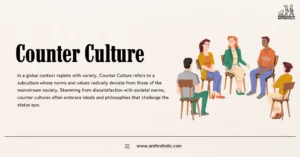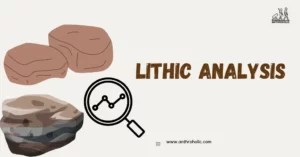+91-7303290503, +91-9557169661 | MON to SUN 10:00 AM - 6:00 PM
Jane Goodall
Dame Jane Goodall (1934–2025) was one of the most influential primatologists, ethologists, and conservationists of the modern era. Known for her groundbreaking study of wild chimpanzees in Gombe Stream National Park, Tanzania, she revolutionized our understanding of primate behavior and redefined the human-animal relationship.

Her discoveries, such as tool use among chimpanzees, challenged long-held scientific assumptions and placed her among the most important scientists of the 20th century. Beyond research, she became a global advocate for wildlife conservation, environmental sustainability, and youth education through her organization Roots & Shoots.
Early Life & Education
Jane Goodall was born on 3 April 1934 in London, England, to Mortimer Herbert Goodall, a businessman, and Margaret Joseph, a novelist. From a young age, she displayed a deep curiosity for animals and nature her favorite childhood toy was a stuffed chimpanzee named “Jubilee,” which sparked her lifelong fascination with primates.
Without formal scientific training at first, she pursued secretarial work after school but always nurtured the dream of studying wildlife in Africa. In 1957, she traveled to Kenya, where she met renowned paleoanthropologist Louis Leakey, who recognized her potential despite her lack of a university degree. Leakey arranged for her to begin fieldwork on chimpanzees at Gombe in 1960. Later, to give academic recognition to her work, she enrolled at Cambridge University, earning a Ph.D. in Ethology in 1965—remarkably without first holding a bachelor’s degree.
Major Works & Contributions
Jane Goodall’s career is marked by pioneering research and influential conservation work:
- Chimpanzee Research at Gombe (1960 onwards): She began long-term fieldwork at Gombe Stream National Park, Tanzania, where she observed wild chimpanzees with patience and empathy. Her use of naming individual chimpanzees (like David Greybeard, Flo, and Flint) rather than assigning them numbers was revolutionary, emphasizing their personalities and social bonds.
- Discovery of Tool Use (1960): She observed chimpanzees stripping leaves off twigs to catch termites a landmark finding that overturned the belief that tool-making was an exclusively human trait. Louis Leakey famously remarked: “Now we must redefine ‘tool,’ redefine ‘man,’ or accept chimpanzees as human.”
- Social & Emotional Lives of Chimpanzees: Goodall revealed complex social hierarchies, maternal bonds, aggression, and even warfare-like behavior among chimpanzees. Her insights expanded the understanding of primate and by extension, human behavior.
- Scientific Publications: Her works, such as “In the Shadow of Man” (1971) and “The Chimpanzees of Gombe” (1986), became classics in primatology and reached both scientific and general audiences.
- Roots & Shoots (1991): She founded this youth-led movement to engage young people in conservation, humanitarian work, and sustainability, now active in more than 100 countries.
- Advocacy & Conservation: Through the Jane Goodall Institute (founded in 1977), she championed primate protection, habitat conservation, and ethical treatment of animals. In later years, she became a strong advocate for climate action, environmental justice, and indigenous rights.
Her combined role as a scientist, educator, and activist gave her a unique position bridging academia and global civil society.
Role in Indian/World Anthropology
Jane Goodall’s contributions extend beyond primatology into the broader field of anthropology:
- World Anthropology:
- Her research at Gombe provided one of the most transformative ethnographic records of non-human primates, reshaping theories of human evolution and behavior.
- By demonstrating chimpanzee tool use, social complexity, and culture-like behaviors, she blurred the rigid boundary between “human” and “animal,” pushing anthropology to rethink definitions of culture, society, and intelligence.
- Her emphasis on long-term participant observation paralleled anthropological field methods, inspiring anthropologists to deepen their ethnographic commitments.
- In Indian Context:
- Though she did not directly conduct fieldwork in India, her approach influenced Indian primatology and anthropology, where scholars like Sarla K. Mehta and South Asian primate studies drew on Goodall’s methods for observing langurs, macaques, and other species.
- Her global conservation movement, especially Roots & Shoots, has a presence in India, inspiring school and college students to engage in ecological and community projects.
- In the broader anthropological discourse in India, Goodall is often referenced in debates on human animal relations, ecological anthropology, and environmental movements, showing anthropology’s interconnection with conservation science.
Thus, Goodall bridged natural science and social anthropology, leaving an enduring mark on how both fields conceptualize the relationship between humans, animals, and the environment.
Critical Evaluation
- Strengths & Achievements:
- Revolutionized Primatology: Her empathetic and long-term approach gave unprecedented insights into chimpanzee life.
- Methodological Innovation: By naming and recognizing chimpanzees as individuals, she challenged the sterile, objectified methods of earlier science.
- Cross-Disciplinary Impact: Her work bridged anthropology, biology, psychology, and conservation.
- Global Advocacy: Beyond academia, she inspired millions through conservation, education, and environmental activism.
- Critiques:
- Subjectivity in Research: Some critics argued her empathetic style naming chimpanzees and attributing emotions introduced anthropomorphism, potentially biasing interpretation.
- Scientific Rigor: Early on, scholars questioned her lack of formal training when she began fieldwork. However, her Cambridge Ph.D. and decades of data silenced most criticisms.
- Activist vs. Scientist: Later in her career, she shifted toward advocacy, which some in the scientific community felt diluted her role as a researcher.
- Overemphasis on Chimpanzees: Anthropologists note that while her work was groundbreaking, it sometimes overshadowed the diversity of primate behavior across species.
- Balanced View: Despite critiques, most agree her unique blend of scientific insight, narrative power, and moral conviction advanced both knowledge and public awareness far more than a purely detached approach could have achieved.
Conclusion & Legacy
Jane Goodall’s life and work stand as a testament to curiosity, perseverance, and compassion. From her modest beginnings without formal scientific training to becoming a world authority on chimpanzees, she reshaped both science and public consciousness. Her discoveries tool use, complex emotions, social hierarchies, forced humanity to reconsider its place in the natural world.
Her legacy extends beyond research: through the Jane Goodall Institute and Roots & Shoots, she mobilized generations of young people and activists to protect wildlife, fight climate change, and work toward a more sustainable planet. Her holistic vision joined science with ethics, showing that knowledge must be tied to responsibility.
Today, Goodall is remembered not only as one of the greatest primatologists and anthropologists of the 20th century, but also as a global moral voice for animals, the environment, and humanity’s shared future. Her story demonstrates that deep empathy can coexist with rigorous science and that one individual’s passion can transform the world.
References
- Jane Goodall Institute (official) — “About Jane” page: https://janegoodall.org/our-story/about-jane/ Jane Goodall Institute USA
- Jane Goodall Institute global site — mission & programs: https://janegoodall.global/ Jane Goodall Institute Global
- National Geographic — “Jane Goodall” education resource: https://education.nationalgeographic.org/resource/jane-goodall/ National Geographic Education
- National Geographic — article on how Jane Goodall changed what we know about chimpanzees: https://www.nationalgeographic.com/magazine/article/becoming-jane-goodall National Geographic
- Jane Goodall Institute — timeline / “Our Story” section: https://janegoodall.org/our-story/timeline/ Jane Goodall Institute USA
- Jane Goodall Institute — overall mission / homepage: https://janegoodall.org/ Jane Goodall Institute USA
- Roots & Shoots (youth program of Jane Goodall Institute): https://rootsandshoots.org/ Roots & Shoots
- Natural History Museum — “The Evolution of Dr. Jane Goodall”: https://nhm.org/stories/evolution-dr-jane-goodall nhm.org
- Jane Goodall Institute Legacy Foundation: https://janeslegacy.org/




